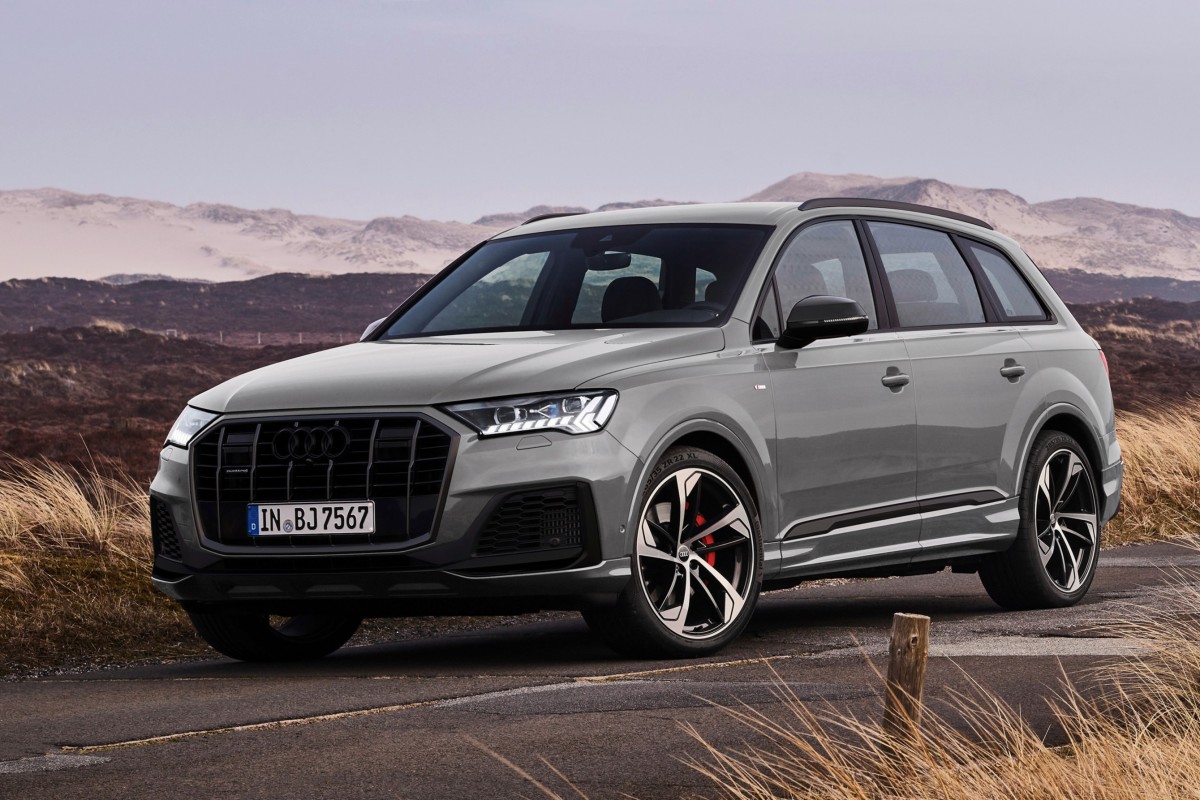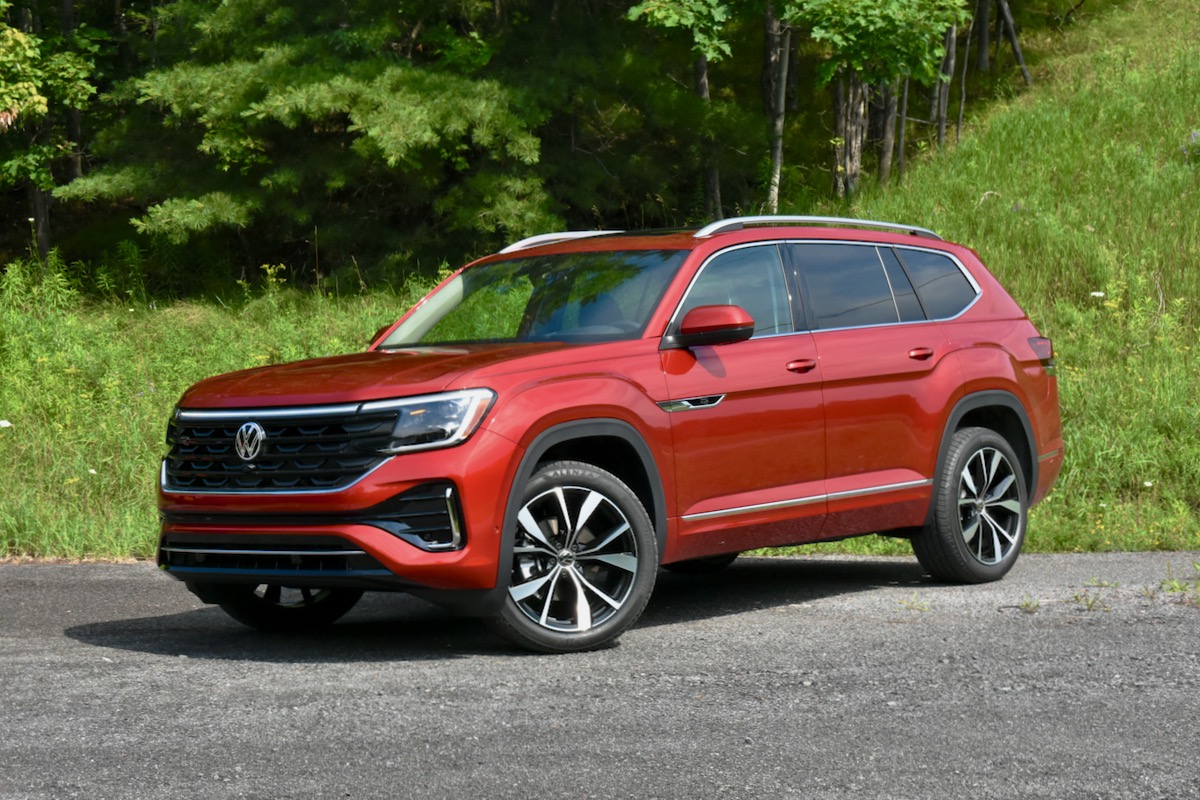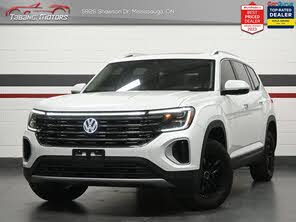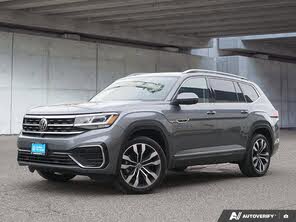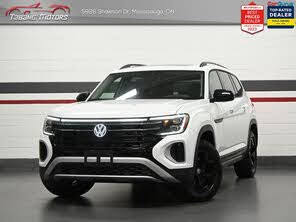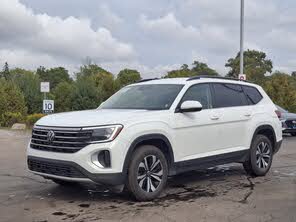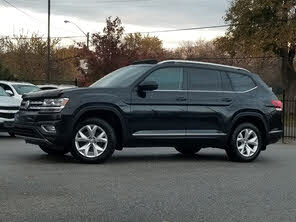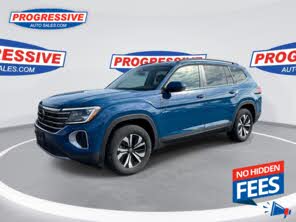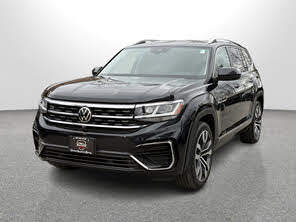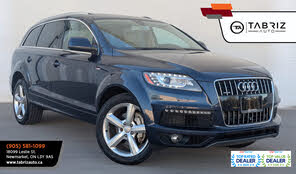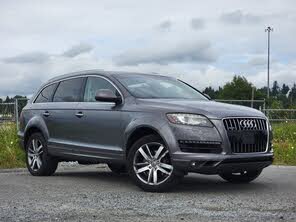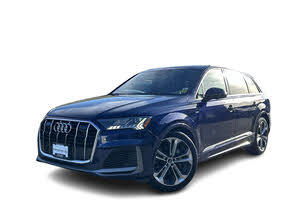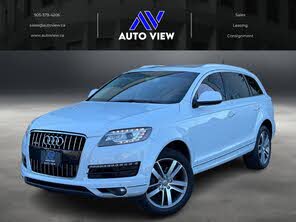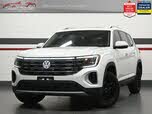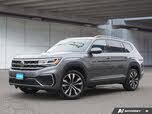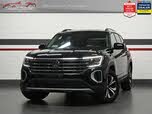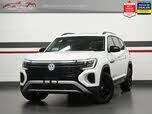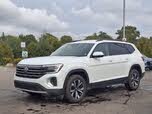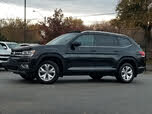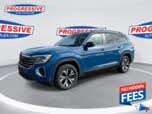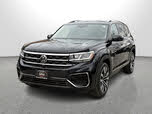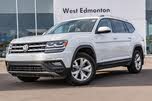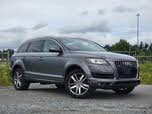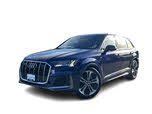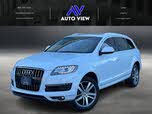Volkswagen Atlas vs Audi Q7
Overview | |
Years produced2007-2015 | Years produced2018-Present |
MSRP$60,500 | MSRP$38,200 |
Listings673 | Listings1272 |
Ratings & Reviews | |
User Reviews | User Reviews |
Expert reviews7.3 out of 10 | Expert reviews |
Pros
Cons
| |
Reviews SummaryThe mid-size SUV has room for seven (barely). In Canada, it comes in base, Progressiv, and Technik trims. There are two different engine choices, but all Q7s, regardless of trim, are all-wheel-drive (AWD) with excellent handling characteristics. However, this second-generation Q7 has been around since 2017, and it shows in some key areas. Verdict: While the 2025 Audi Q7 has a lot going for it in terms of driving dynamics and engine prowess, it falls behind the competition when it comes to safety tech. Further, the third row is cramped for anyone but the smallest of humans, and the price can skyrocket as you move up the trim line. | |
Reviews Summary | |
No video found | No video found |
Popular Features & Specs | |
Engine | Engine2.0L 269 hp I4 |
Drive Train | Drive TrainFWD |
Seating Capacity7 | Seating Capacity7 |
MPG City | MPG City20 |
MPG Highway | MPG Highway26 |
Engine | |
Engine Name2.0L 261 hp I4 | Engine Name2.0L 269 hp I4 |
Torque273 lb-ft @ 1600 rpm | Torque |
Horsepower261 hp @ 5250 rpm | Horsepower |
DrivetrainAWD | DrivetrainFWD |
Fuel Economy | |
MPG City | MPG City20 |
MPG Highway | MPG Highway26 |
Interior | |
Leather SeatsStandard | Leather Seats |
Seating Capacity7 | Seating Capacity7 |
Key Features | |
Navigation SystemStandard | Navigation System |
Sunroof/MoonroofStandard | Sunroof/Moonroof |
Safety | |
Front Crash Overall4 | Front Crash Overall4 |
Side Crash Overall5 | Side Crash Overall5 |
Dimensions & Capacity | |
Cargo Space13.6 cu ft | Cargo Space20.6 cu ft |
Curb Weight4949 lbs | Curb Weight4343 lbs |
Height68.5 in | Height70.4 in |
Length199.6 in | Length200.7 in |
Width87.1 in | Width88.5 in |
Wheelbase117.9 in | Wheelbase117.3 in |
Maximum Payload1257 lbs | Maximum Payload1091 lbs |
Number of doors4 | Number of doors4 |
Maximum Towing Capacity4400 lbs | Maximum Towing Capacity2000 lbs |
Overview | ||
Years produced | 2007-2015 | 2018-Present |
MSRP | $60,500 | $38,200 |
Listings | ||
Ratings & Reviews | ||
User reviews | ||
Expert reviews | 7.3 out of 10Read full review | |
Pros & cons | Pros
Cons
| |
Summary | The mid-size SUV has room for seven (barely). In Canada, it comes in base, Progressiv, and Technik trims. There are two different engine choices, but all Q7s, regardless of trim, are all-wheel-drive (AWD) with excellent handling characteristics. However, this second-generation Q7 has been around since 2017, and it shows in some key areas. Verdict: While the 2025 Audi Q7 has a lot going for it in terms of driving dynamics and engine prowess, it falls behind the competition when it comes to safety tech. Further, the third row is cramped for anyone but the smallest of humans, and the price can skyrocket as you move up the trim line. | |
Video | No video found | No video found |
Popular Features & Specs | ||
Engine | 2.0L 269 hp I4 | |
Drive Train | FWD | |
Seating Capacity | 7 | 7 |
MPG City | 20 | |
MPG Highway | 26 | |
Engine | ||
Engine Name | 2.0L 261 hp I4 | 2.0L 269 hp I4 |
Torque | 273 lb-ft @ 1600 rpm | |
Horsepower | 261 hp @ 5250 rpm | |
Drivetrain | AWD | FWD |
Fuel Economy | ||
MPG City | 20 | |
MPG Highway | 26 | |
Interior | ||
Leather Seats | Standard | |
Seating Capacity | 7 | 7 |
Key Features | ||
Navigation System | Standard | |
Sunroof/Moonroof | Standard | |
Safety | ||
Front Crash Overall | 4 | 4 |
Side Crash Overall | 5 | 5 |
Dimensions & Capacity | ||
Cargo Space | 13.6 cu ft | 20.6 cu ft |
Curb Weight | 4949 lbs | 4343 lbs |
Height | 68.5 in | 70.4 in |
Length | 199.6 in | 200.7 in |
Width | 87.1 in | 88.5 in |
Wheelbase | 117.9 in | 117.3 in |
Maximum Payload | 1257 lbs | 1091 lbs |
Number of doors | 4 | 4 |
Maximum Towing Capacity | 4400 lbs | 2000 lbs |

By: CarGurus + AI
At CarGurus, our team of experienced automotive writers remain at the heart of our content operation, conducting hands-on car tests and writing insightful guides that are backed by years of industry experience. To complement this, we are harnessing AI to make our content offering more diverse and more helpful to shoppers than ever. To achieve this, our AI systems are based exclusively on CarGurus content, ratings and data, so that what we produce is both unique to CarGurus, and uniquely helpful to car shoppers.
